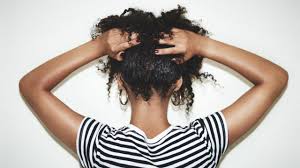In the past few years, the natural hair movement has seen a dramatic resurgence. With the rise of social media tutorials and blogs regarding natural hair care, more and more Nigerian women are embracing the natural kinks and coils in their hair.
While some women argue that they returned their hair to its natural state simply because they liked the look of it, others have gone natural in order to save money.
However, all Nigerian women, whether they realize it or not, have made a political decision by choosing to wear their hair either in traditional braided styles, wear wigs or weaves, or wear it out loose either in a relaxed state or natural.
Because independent thought has usually been beaten out of the Nigerian psyche by the age of 10, we often fail to see how such simple decisions are linked to our general views of the world and politics at large. Of course, this is not to generalize or to claim that something as superficial as a hairstyle illustrates an individual’s political orientation.
It is, however, naïve and rather ignorant to fail to see where most of the profits of Nigerian so-called hair care brands are going to. The good news is that the Nigerian hair industry is booming and providing promising business opportunities. The bad news is that Nigeria’s booming hair care industry, like many others, is mostly dominated by Asian companies who cash in on Nigeria’s massive demand for wigs and weave-ons.
As a result, Nigerian hair care brands are relegated to playing a rather insulting game of catch-up in their own home industry. How do we expect to increase Nigeria’s global profile if we cannot even create an environment for sufficient economic growth here at home? This is another instance in which Nigeria’s overreliance on foreign imports is the root cause of the problems that we all love to complain about.
Market research from Euromonitor International estimates that $1.1 billion worth of shampoos, relaxers and hair lotions were sold in South Africa, Nigeria and Cameroon alone last year. Just imagine if these profits went to the markets in which they were made.
Regardless of how one chooses to wear their hair, there are countless opportunities to support local businesses here in Nigeria, and we must if we want to see an end to the gaping differences in economic development between Nigeria and the countries many of us compare her to.
Nigerian owned hair care brands include TopKlass by VIP Industries, Lagos,Vinoz by Vintage Industries Nigeria,Apple Beauty by N.N. Fems Industries, and KuiCare Natural Hair Care.The list of Nigerian hair care brands which have been glossed over in favour of their foreign counterparts goes on and on. As a result, this commentary urges you to prioritise brands which are proudly made in Nigeria, not just regarding hair care, but in all industries.
With something as simple as a ₦50 decision in the market, pharmacy, or salon, we can and must make the highly political choice of placing the Nigerian economy first.
Funmilayo Adetokunbo A-A, a political and International Affairs Analyst, writes from Somerset, England, United Kingdom.
Join our twitter community :


